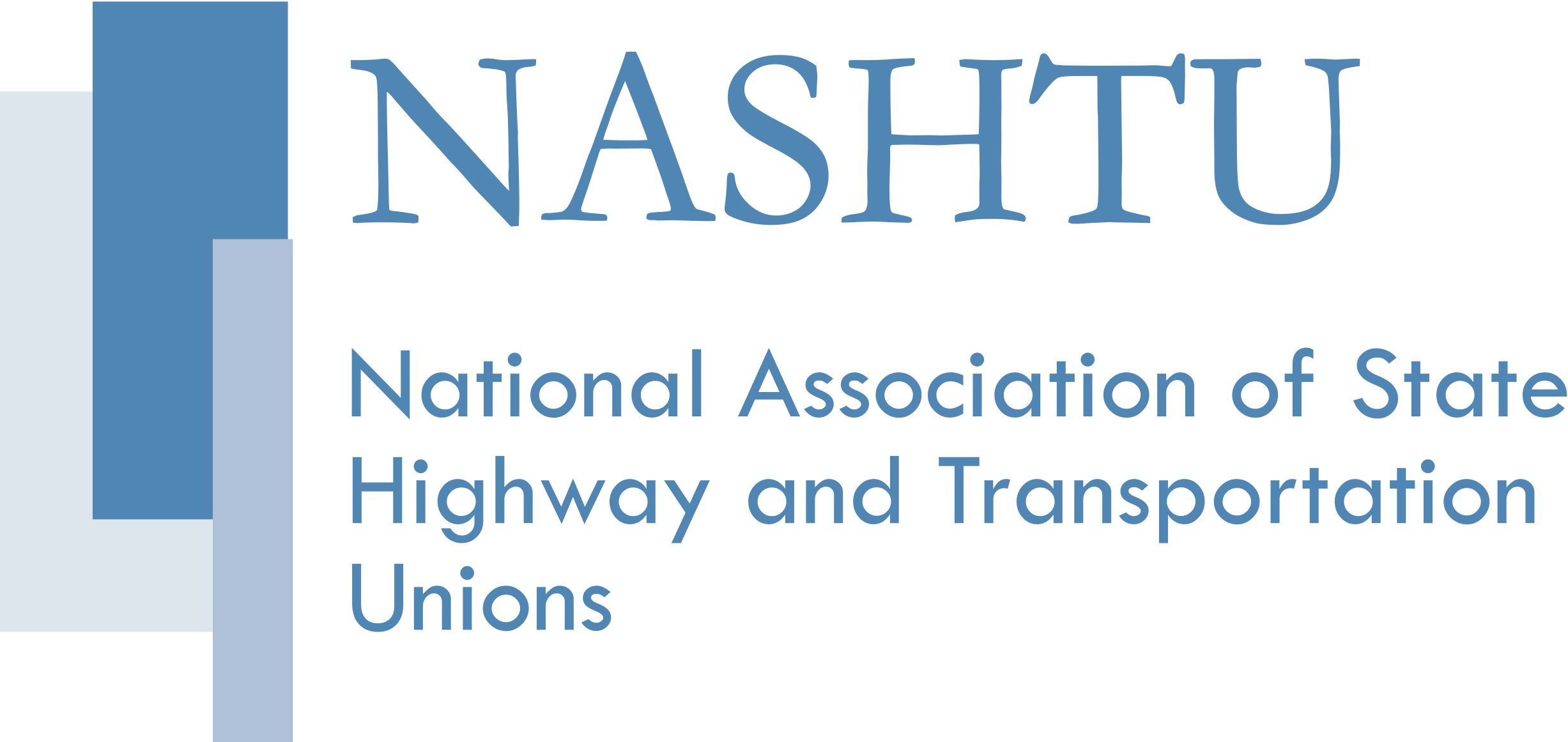NASHTU Legislative Priorities 2015
[av_heading heading=’NASHTU Priorities’ tag=’h3′ color=” custom_font=” style=” size=” subheading_active=” subheading_size=’15’ padding=’10’][/av_heading]
1. HR 1692 (Edwards) – To require public employees to carry out the construction inspection functions on federally-funded surface transportation projects.
The Safety, Efficiency, and Accountability in Transportation Projects through Public Inspection Act of 2015 (HR 1692 – Edwards) will protect public safety and ensure that scarce transportation funds are not wasted. On transportation projects, construction inspectors are the eyes, ears, and voice of the public. Public inspectors ensure that construction standards are met, that projects meet safety requirements, and that the materials used will stand the test of time. In short, they are there to ensure that the motoring public gets what they pay for, and that public safety and the public interest are protected.
Please help generate support for this bill by personalizing and sending a co-sponsorship request letter to the members of your state’s congressional delegation.
To ensure the timely receipt of the letter, we would suggest that you e-mail the letter, fact sheet and disaster examples to the Legislative Directors of the Members of Congress.
2. Cost Comparison – For architectural, engineering, and related services on surface transportation projects using federal funds, a government agency should prepare an estimate of the cost of procuring the services under a private contract and an estimate of having the services performed by employees of a government agency. A contract should not be awarded if government agency employees can perform the services at a lower cost.
This proposal will ensure that taxpayers receive safe, high quality transportation services at the best possible price. Increasingly, state and local departments of transportation are spending hundreds of millions of federal dollars on private contracts for architectural, engineering, construction inspection, and related transportation services without competitive bidding and without determining whether these contracts are cost effective and protect the public interest.
[av_heading heading=’Battling Outsourcing Proposals’ tag=’h3′ color=” custom_font=” style=” size=” subheading_active=” subheading_size=’15’ padding=’10’][/av_heading]
NASHTU is opposed to the inclusion of any outsourcing incentives or mandates in the upcoming surface transportation authorization.
During the last authorization, NASHTU and public sector transportation unions worked together to defeat efforts by outsourcing proponents to include language that would require states to “utilize, to the maximum extent practicable, commercial enterprises for the delivery of engineering and design services.”
In future legislative proposals, outsourcing proponents are seeking to include similar language that would incentivize outsourcing. The incentive language would increase funding for states that contract out engineering and related services. Encouraging states to utilize the private sector for the delivery of services that can be performed by publicly-employed professionals is an inappropriate use of federal authority and fosters the waste of taxpayer dollars. This language, if included, will skew the state’s decision-making authority over how to best deliver its transportation program. States should not be penalized for choosing to utilize public employees for the delivery of safe and cost effective transportation services.
[av_heading heading=’Design-Build’ tag=’h3′ color=” custom_font=” style=” size=” subheading_active=” subheading_size=’15’ padding=’10’][/av_heading]
Design-build lumps design, construction, and inspection of a highway project into a single contract that is awarded not through competitive bidding, but through a process that allows unspecified factors to be considered “significantly more important than cost.”
Design-build also allows the private contractor to inspect and sign off on their own work. The inspector’s role is to ensure the taxpayers get what they pay for and public safety and public interest is protected. This crucial function should not be performed by a private inspector whose primary obligation is to the success and profitability of his company or business partners – not public safety and project quality.
[av_heading heading=’Public-Private Partnerships’ tag=’h3′ color=” custom_font=” style=” size=” subheading_active=” subheading_size=’15’ padding=’10’][/av_heading]
Despite major public-private partnership (P3s) disasters across the nation, foreign, multi-national companies and Wall Street investment houses continue to push for privatized roads. This would allow them to suck huge profits out of the transportation system while inflicting outrageous tolls on motorists through contracts that forbid improvements to parallel public roads, increasing traffic congestion.
If policy makers determine that toll roads are necessary:
Prohibit the use of no-bid design-build contracts and require public oversight and inspection to ensure road safety and construction cost controls.
Public agencies should use tax-exempt financing, which is up to 35 percent lower than private borrowing rates and greatly reduces project costs and tolls.
Toll revenues should be reinvested in our transportation system and not used to boost the profits of multi-national consortiums and Wall Street investment banks.
Prohibit non-compete clauses and compensation clauses that are designed to prevent improvements to competing public roads, increasing congestion.
